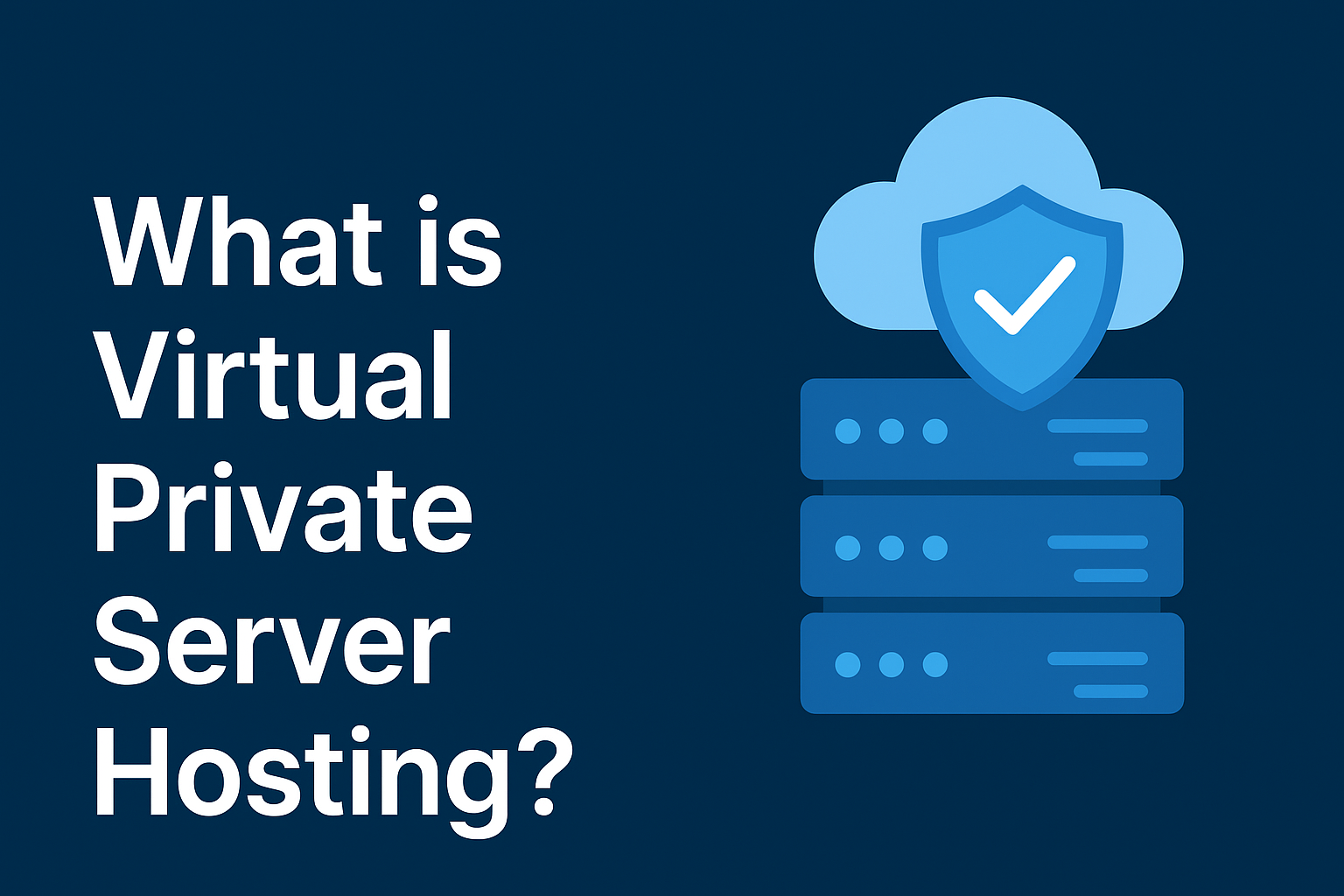What Is Virtual Private Server (VPS) Hosting?
In today’s digital world, having a reliable web hosting solution is crucial for the success of your website or online business. One such popular option is Virtual Private Server (VPS) hosting, which combines affordability with performance, making it a preferred choice for many website owners. But what exactly is VPS hosting, and how does it differ from other hosting types? Let’s explore.
Understanding VPS Hosting
A Virtual Private Server (VPS) is a type of web hosting that uses virtualization technology to divide a physical server into multiple virtual servers. Each virtual server acts as an independent environment with its own dedicated resources such as RAM, CPU, and storage. This allows users to enjoy a private hosting environment without the high costs of a dedicated server.
Unlike shared hosting, where multiple websites share the same server resources, VPS hosting ensures that your website’s performance is not affected by other users. It strikes a perfect balance between shared hosting and dedicated hosting, offering enhanced control, flexibility, and reliability.
How VPS Hosting Works
VPS hosting relies on a software called a hypervisor. The hypervisor splits the physical server into several virtual servers. Each VPS operates independently, with its own operating system and root access. This means you can install custom software, configure server settings, and scale resources based on your needs.
The virtualization ensures that even though multiple VPS instances reside on the same physical server, they are isolated from one another. This isolation improves security and guarantees consistent performance.
Benefits of VPS Hosting
Choosing VPS hosting comes with several advantages:
-
Improved Performance: Since resources are dedicated to your VPS, your website experiences faster load times and smoother performance.
-
Enhanced Security: VPS hosting provides better security than shared hosting because each server is isolated.
-
Full Root Access: You have administrative control over your server, allowing you to customize software and configurations.
-
Scalability: VPS plans can be easily upgraded as your website grows, ensuring you only pay for the resources you need.
-
Cost-Effective: VPS hosting offers many of the benefits of a dedicated server but at a fraction of the cost.
VPS Hosting vs Other Hosting Types
| Feature | Shared Hosting | VPS Hosting | Dedicated Hosting |
|---|---|---|---|
| Resources | Shared | Dedicated | Fully Dedicated |
| Performance | Moderate | High | Very High |
| Security | Low | Medium-High | High |
| Cost | Low | Moderate | High |
| Control | Limited | Full Root Access | Full Root Access |
As shown above, VPS hosting provides a perfect middle ground between shared and dedicated hosting, offering a balance of performance, control, and affordability.
Who Should Use VPS Hosting?
VPS hosting is ideal for:
-
Growing websites that have outgrown shared hosting.
-
E-commerce stores requiring enhanced performance and security.
-
Developers who need root access for custom applications.
-
Businesses that want reliable uptime and scalability without the cost of a dedicated server.
Conclusion
In summary, Virtual Private Server Hosting is a versatile, secure, and cost-effective solution for website owners who need more control and better performance than shared hosting. Its scalability, dedicated resources, and flexibility make it a popular choice for businesses, developers, and growing websites. Choosing VPS hosting ensures your website is fast, reliable, and prepared for growth.






